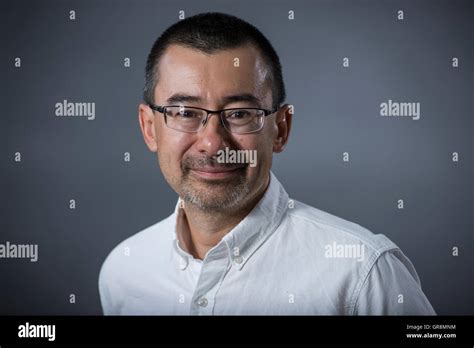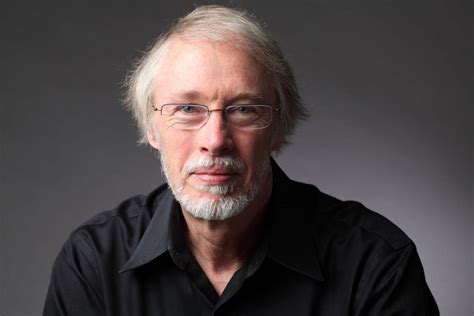A Quote by Peter Ho Davies
The immersive stories of This Is Paradise are a lithe blend of formal invention and traditional narrative pleasures. As such they reflect Kristiana Kahakauwila's intimate but expansive vision of a Hawai'i forged from the collisions of past and present, here and there. Her protagonists are as richly distinctive as the pidgin they speak, and yet each struggles profoundly with identity-that negotiation between ourselves and the world, which is at once Hawaiian, American, universally and compellingly human.
Quote Topics
Related Quotes
Vividly imagined, beautifully written, at times almost unbearably suspenseful-the stories in Kristiana Kahakauwila's debut collection, This Is Paradise, are boldly inventive in their exploration of the tenuous nature of human relations. These are poignant stories of 'paradise'-Hawai'i-with all that 'paradise' entails of the transience of sensuous beauty.
The Hawk and the Dove is a wonderful idea for a book, wonderfully carried out. Nicholas Thompson has used illuminating new material to present each of his protagonists in a convincing, respectful, but unsparing way. Even more valuable, he has used the interactions and tensions between Paul Nitze and George Kennan to bring much of American 20th century foreign policy to life, with human richness ever present but with the big issues clear in all their complexity.
I can't even speak Hawaiian, but if you go there and listen to a Hawaiian song, you get captured because it's so beautiful, like the melody is just gorgeous and you know Bob Marley is on the radio every single day. It's very reggae-influenced down there. Basically, you haven't been to paradise if you haven't been to Hawaii.
I'm interested in such things as the difference between how we perceive the world and what the world turns out to be. The difference is between the stories we tell others and the stories we tell ourselves. There is a wonderful Russian saying, which I use as the epigraph of one of my novels, which goes, He lies like an eyewitness. Which is very sly, clever and true.
Each human being is a citizen of the world. We have many identities, of which one of the identities is our human identity. And that's something that the schools can provide, but that requires again a vision rather than being centers of hatred. It could be an enormous opportunity to give that mission.
If we confine ourselves to a general and distant reflection on the ills of human life, that can have no effect to prepare us for them. If by close and intense meditation we render them present and intimate to us, that is the true secret for poisoning all our pleasures, and rendering us perpetually miserable.
Originally the structure was . . . a modern narrator who would appear intermittently and talk about his memories of his grandmother, which would then be juxtaposed against scenes from the past. But the stories from the past were always more interesting that the things in the present. I find this almost endemic to modern plays that veer between past and present. . . . So as we've gone on developing GOLDEN CHILD, the scenes from the past have become more dominant, and all that remains of the present are these two little bookends that frame the action.
We live in worlds that we have forged and composed. It's much more true than any of the species that you see. I mean, it seems to me that one of the most distinctive features of human intelligence is the capacity to imagine, to project out of our own immediate circumstances and to bring to mind things that aren't present here and now.
Most people have learned to live in the moment. The argument goes that if the past has uncertain effect on the present, there is no need to dwell on the past. And if the present has little effect on the future, present actions need not be weighed for their consequence. Rather, each act is an island in time, to be judged on its own. ... It is a world of impulse. It is a world of sincerity. It is a world in which every word spoken speaks just to that moment, every glance given has only one meaning.






































